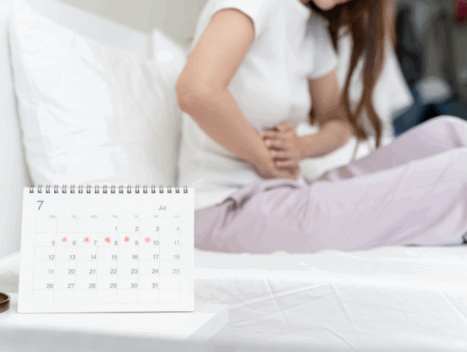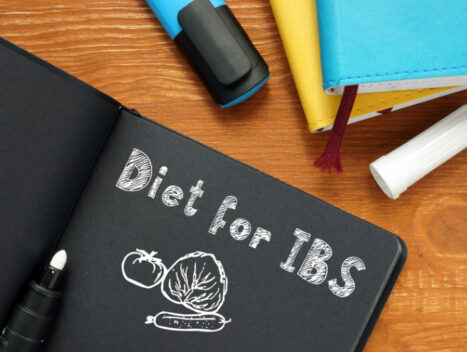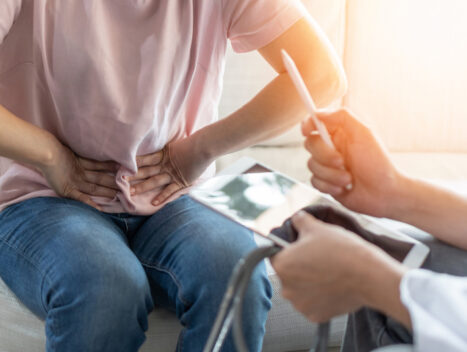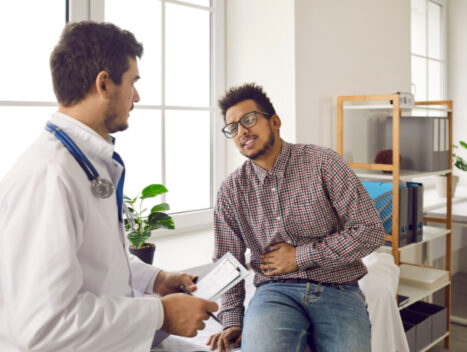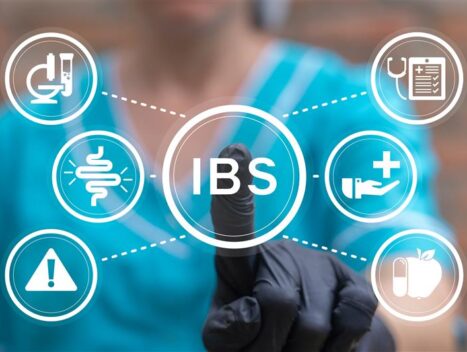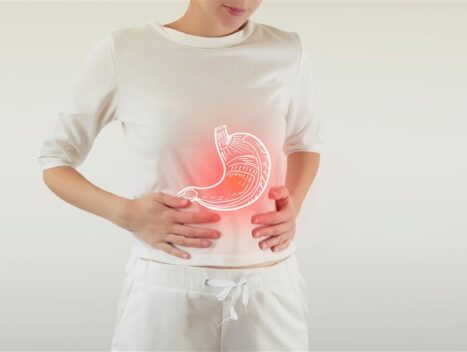to seek help that's better Stomach ache doesn't leave your back? Tap to read more
Abdominal Pain: Causes, Symptoms & Care Guide
Understanding your stomach and its functioning helps you pinpoint discomfort and communicate your symptoms effectively to your doctor.
Click on the abdominal regions below to discover your stomach
Upper right region:
Liver, gallbladder, right kidney and small intestine
Upper middle region:
Stomach, liver, pancreas, duodenum, spleen, and adrenal glands
Upper left region:
Spleen, colon, left kidney, and pancreas
middle right region:
Gallbladder, liver, and right colon
middle region:
Umbilicus (navel), parts of the small intestine and duodenum
middle Left region:
Descending colon and left kidney
lower right region:
Appendix and cecum
Urinary bladder, sigmoid colon, and female reproductive organs
lower Left region:
Descending colon and sigmoid colon
lower Middle region:
Upper Middle Region:
Upper Left Region:
Upper right region:
middle right region:
middle region:
middle Left region:
lower right region:
lower Middle region:
lower Left region:
The above image is for representative purposes only. For more information, consult your doctor.
Types of Abdominal Pain
Pain felt between your chest and groin, varies in type and isn't just stomach pain. Hence, recognizing it and knowing when to seek help is crucial.
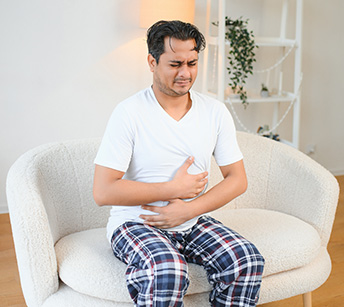
Stomach Pain
Recognize the different types of stomach pain to understand when to seek medical help.
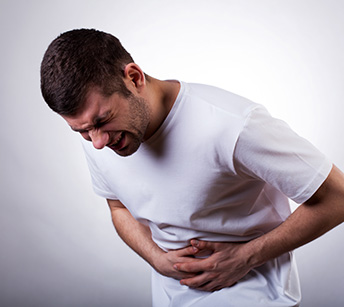
Irritable Bowel Syndrome (Chronic)
Abdominal pain that is experienced for atleast 1D a week for 3 months.
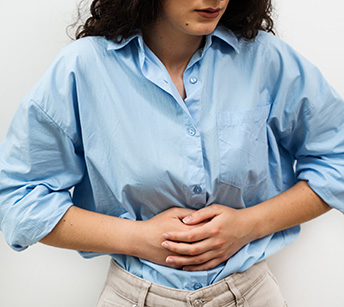
Menstrual Cramps
The pain affecting individuals in their menstrual cycles typically centred in the lower abdomen
Colic (Chronic)
The sharp and localized abdominal pain that increases and then decreases in intensity.
01 Urinary Pain
A sudden, sharp, cramping pain in the side that is experienced due to kidney stone.
02 Renal Pain
The intense pain caused by a blockage in the ureter, typically due to a kidney stone.
03 Intestinal Colic
The cramping pain that comes and goes when the intestines attempt to push through a blockage.
04 Biliary Colic
A common type of upper abdominal pain caused by gallstones.
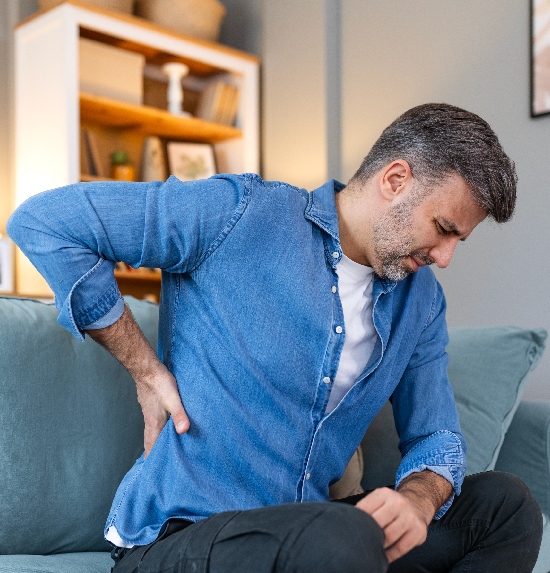
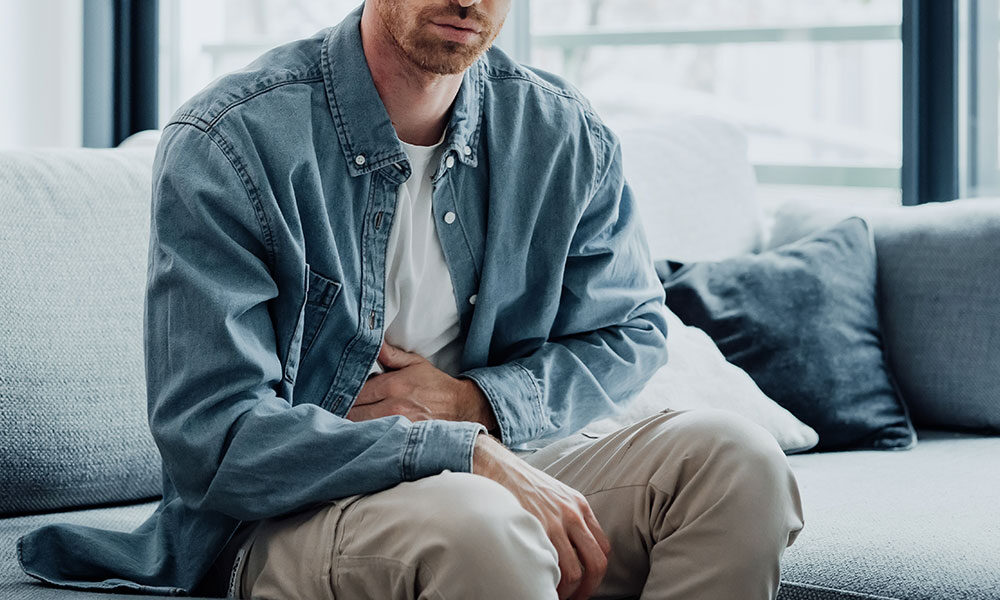
Simplifying gut health
MyCyclopedia is a trusted partner for reliable and simplified medical information. By breaking down topics around abdomen pain into clear and concise insights, we empower you with the knowledge to make informed decisions in times of need. Whether you’re seeking clarity on symptoms, treatments, or health conditions, MyCyclopedia is here to guide you, ensuring you’re equipped to navigate critical moments with assurance and ease.
Know Your Gut Inside Out
Find helpful resources to monitor your gut health, including healthy habits, gut-friendly foods, and workouts.
- @admin123x
- 0 Comments
Link Between Diet and Menstrual Cramps
Irritable bowel syndrome (IBS) is a long-term condition that affects your bowel function. It causes changes in your bathroom habits, such as how often you go and the consistency of your stools, along with stomach pain.1
- @admin123x
- 0 Comments
Understanding Cramps: Causes and Effective Treatments
Irritable bowel syndrome (IBS) is a long-term condition that affects your bowel function. It causes changes in your bathroom habits, such as how often you go and the consistency of your stools, along with stomach pain.1
- @admin123x
- 0 Comments
IBS Diet Plan: Foods to Eat and Avoid for a Healthier Gut
Irritable bowel syndrome (IBS) is a long-term condition that affects your bowel function. It causes changes in your bathroom habits, such as how often you go and the consistency of your stools, along with stomach pain.1
- @admin123x
- 0 Comments
Common Causes of Abdominal Pain and How to Treat Them
Irritable bowel syndrome (IBS) is a long-term condition that affects your bowel function. It causes changes in your bathroom habits, such as how often you go and the consistency of your stools, along with stomach pain.1
- @admin123x
- 0 Comments
When Should You Worry About Stomach Pain? Signs and Symptoms
Irritable bowel syndrome (IBS) is a long-term condition that affects your bowel function. It causes changes in your bathroom habits, such as how often you go and the consistency of your stools, along with stomach pain.1
- mycyclopedia
- 0 Comments
When to See a Doctor for Irritable Bowel Syndrome (IBS) Symptoms: Warning Signs
Irritable bowel syndrome (IBS) is a long-term condition that affects your bowel function. It causes changes in your bathroom habits, such as how often you go and the consistency of your stools, along with stomach pain.1
- mycyclopedia
- 0 Comments
Preventing Stomach Infections: Hygiene Tips and Best Practices
Stomach infections can result from stomach flu (gastroenteritis), inflammation or irritation of the stomach lining (gastritis) or bacteria such as Helicobacter pylori.
Frequently Asked Questions
Whether you’re seeking clarity about abdominal pain, its symptoms, treatments, or when to visit the doctor- we’ve got you covered. Find answers to your questions easily with our listed FAQs. Start exploring and get the information you need, all in one place!
When to seek medical attention for stomach pain?
When you talk about ‘stomach pain,’ you often mean pain in the entire abdominal area, which might not be directly linked to the stomach itself.1 There are several causes for stomach pain, and treatment depends on the cause.2
You should see a doctor if2:
- The pain is severe or lasts for days.
- You have nausea, fever, or blood in stools/urine.
- It hurts to urinate, or you can’t pass stools and are vomiting.
- Pain follows a belly injury.
- Persistent heartburn lasts >2 weeks or resists medication.
- You’re vomiting blood, struggling to breathe.
- If you are pregnant with belly pain/vaginal bleeding.
What are the home remedies for stomach pain?
Most stomach pains are not serious, and simple home remedies can help.3
- Use a heating pad for about 15 mins.
- Take a warm bath to relax your stomach muscles.
- Avoid overeating to support better digestion.
- Have chamomile tea or Ginger or Peppermint.
How do I know if I have irritable bowel syndrome (IBS)?
To find out if you have IBS check for the following symptoms4:
- Stomach pain and cramping, which may get better after a bowel movement.
- Changes in bowel habits or urgent need to have a bowel movement.
- Swelling in the stomach or excessive gas.
Do certain foods affect the symptoms of irritable bowel syndrome (IBS)?
Some foods and medications can worsen IBS symptoms. Avoiding them might help relieve your symptoms.5
- Milk5 and other foods with lactose, like cheese and ice cream.
- Fructose-rich foods5 like processed snacks, sweets, and drinks.
- Carbonated beverages5 such as soda.
- Caffeine5 like coffee, tea, cola, and chocolate.
- Other foods5 like beans, broccoli, Brussels sprouts, or nutritional/weight-loss supplements.
When is it important to see a doctor for menstrual or period pain?
Although period pain is common, one must not ignore it. You should seek medical advice if6
- The pain becomes too intense to manage or worsens over time.
- The pain is affecting your daily life or ability to function.
What are the home remedies that may help with menstrual pain?
Some home remedies that may help relieve menstrual pain8:
- Apply a heating pad just below the belly button.
- Perform gentle circular massages on the lower abdomen with your fingertips.
- Drink warm beverages and eat small, frequent meals.
- Keep your legs elevated while lying down or lying on your side with your knees bent.
- Practice relaxation techniques such as meditation or yoga.
- Walk or exercise regularly, including pelvic rocking workouts.
- Try to maintain a healthy weight.
- Have Chamomile tea, Fennel, Cinnamon, or Ginger powder, taken three times a day in doses of 750 mg to 2000 mg during the first 3 days of menstruation. It can greatly reduce menstrual pain.
When should I see a doctor for kidney pain caused by renal colic?
Renal colic pain ranges from mild discomfort to very severe pain hence, you should see a doctor if11
- The waves of pain last longer than 20 to 60 minutes.
- The pain does not improve over time.
- You feel pain in your side that spreads to your groin, back, or lower abdomen.
- You have an infection along with the kidney pain.
- You develop a fever, chills, or other signs of infection.
Can I prevent kidney pain due to renal colic?
To lower the chances of developing kidney stones and experiencing renal colic, here are some tips11:
- Drink plenty of water and avoid dark sodas.
- Limit salt intake (<2,000 mg per day).
- Limit the intake of animal protein.
- Avoid foods high in oxalates like nuts and spinach.
- Get enough calcium from cheese, lentils, leafy greens, etc.
How does urinary colic cause urinary pain?
- Urinary colic is an intense pain caused by stones moving through the urinary system. This pain typically starts in the side or lower back and can spread to the groin.12 It occurs when stones block urine flow in the urinary tract, especially in the narrow parts of the ureter (the tube that connects the kidney to the bladder).13 Additionally, muscles in the ureter or bladder can tighten up suddenly, leading to cramping or burning pain, even without the presence of a stone.11
What are the common symptoms of urinary colic?
- Urinary colic symptoms often start suddenly, waking individuals at night or early morning. During the day, they may follow intense activity, beginning with discomfort in the lower back, groin, or private areas, and gradually intensifying into constant, severe pain.14
- You may experience nausea, vomiting, loss of appetite, and blood in the urine. In one-third of cases, pain becomes intense within 30 minutes and can last 4–12 hours if untreated. Most seek medical help within 2 hours.14
- Chills and fever can appear, which may be a sign of infection, something not usually seen with simple kidney stones. Low blood pressure might also indicate an infection, as urinary colic typically causes higher blood pressure and a faster heart rate.14
What causes abdominal pain in biliary colic?
- Biliary colic refers to episodes of abdominal pain caused by a blockage in the bile ducts or gallbladder, often due to gallstones.15
- You may feel the pain in the upper abdomen, under the right ribcage, but it can also spread to the right shoulder or back. Along with the pain, symptoms include nausea, vomiting, stomach pain, and sweating.15
- The pain can last anywhere from 20 minutes to a few hours. It often occurs after eating, especially following a large or fatty meal.15
References:
- Why does my stomach hurt? Johns Hopkins Medicine. Accessed August 30, 2024. https://www.hopkinsmedicine.org/health/wellness-and-prevention/5-reasons-your-stomach-may-hurt
- WebMD Editorial Contributors. How do I treat stomach pain? WebMD. Accessed August 30, 2024. https://www.webmd.com/first-aid/abdominal-pain-in-adults-treatment
- WebMD Editorial Contributors. Remedies for stomach pain. Accessed September 17, 2024. https://www.webmd.com/digestive-disorders/remedies-stomach-pain
- Irritable bowel syndrome (IBS). National Health Service. Accessed August 30, 2024. https://www.nhsinform.scot/illnesses-and-conditions/stomach-liver-and-gastrointestinal-tract/irritable-bowel-syndrome-ibs/
- 5 foods to avoid if you have IBS. Johns Hopkins Medicine. Accessed August 30, 2024. https://www.hopkinsmedicine.org/health/conditions-and-diseases/irritable-bowel-syndrome-ibs/5-foods-to-avoid-if-you-have-ibs
- Overview: period pain. In: InformedHealth.org. Institute for Quality and Efficiency in Health Care (IQWiG); 2006. Updated May 12, 2023. Accessed September 17, 2024. https://www.ncbi.nlm.nih.gov/books/NBK279324/
- Nagy H, Carlson K, Khan MAB. Dysmenorrhea. November 12, 2023. In: StatPearls. StatPearls Publishing; January 2024. Updated November 12, 2023. Accessed August 13, 2024. https://www.ncbi.nlm.nih.gov/books/NBK560834/
- Jacobson JD. Painful menstrual periods. MedlinePlus. Accessed September 19, 2024. https://medlineplus.gov/ency/article/003150.htm
Thakur P, Pathania AR. Relief of dysmenorrhea – a review of different types of pharmacological and non-pharmacological treatments. Mater Today Proc. 2022;48(5):1157-1162.
Watson S, Bernstein S. Kidney pain: symptoms and treatment. WebMD. Accessed September 19, 2024. https://www.webmd.com/a-to-z-guides/kidney-pain
Renal colic. Cleveland Clinic. Accessed September 19, 2024. https://my.clevelandclinic.org/health/diseases/22847-renal-colic
Anderson S, McNicholas D, Murphy C, et al. The impact of COVID-19 on acute urinary stone presentations: a single-centre experience. Ir J Med Sci. 2022;191(1):45-49.
Masarani M, Dinneen M. Ureteric colic: new trends in diagnosis and treatment. Postgrad Med J. 2007;83(981):469-472.
Favus MJ, Feingold KR. Kidney stone emergencies. In: Feingold KR, Anawalt B, Blackman MR, et al., editors. Endotext. MDText.com, Inc.; 2000-. Updated September 13, 2018. Accessed September 20, 2024. https://www.ncbi.nlm.nih.gov/books/NBK278956/
Biliary colic. Cleveland Clinic. Accessed September 20, 2024. https://my.clevelandclinic.org/health/symptoms/biliary-colic


